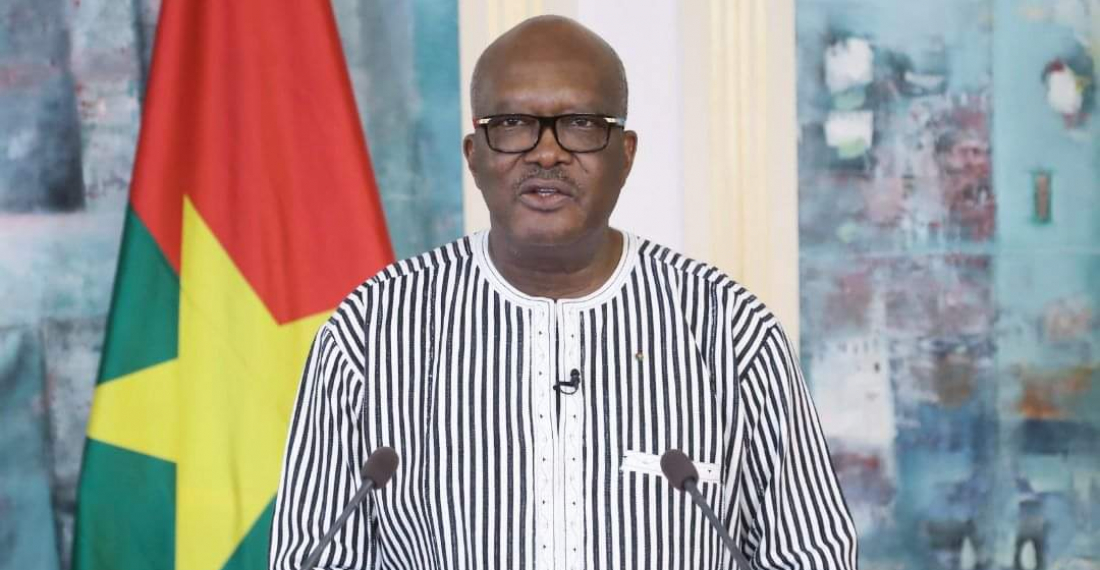The president of Burkina Faso, Roch Marc Christian Kaboré, has called on his compatriots for "restraint", asking them "not to take actions that jeopardise our unity and our common future" amidst protests over increasing extremist violence in the country.
Since the beginning of the jihadist insurgency in 2015, Burkina Faso has suffered innumerable inhumane attacks on its population. One of the latest tragedies occurred in the north-eastern village of Solhan on the night of 4-5 May, where at least 132 civilians lost their lives in an attack. On 29 June, the Burkinabè chief prosecutor, Émile Zerbo, stated that two suspected jihadists accused of playing a key role in the attack – including the "head of a terrorist base" – had been arrested and indicted for "offences related to terrorism".
Three weeks after the massacre, the Burkinabè population remains in shock, and faced with multiple terrorist attacks in recent months, anger is mounting in the country. On 12 June, several thousand people took to the streets in Dori, the capital of Burkina Faso's Sahel region, to denounce the government’s “inaction”.
Other demonstrations took place on 26 June following new attacks in the country, with several thousand gathering once again – this time in the cities of Kaya and Titao, where the premises of a provincial high commission were ransacked.
The Burkinabè opposition has been particularly active during this wave of anger and protest. It recently announced a series of marches on 3 and 4 July across the country, "to protest against the deterioration of the security situation and demand strong measures". Taking advantage of this mounting anger, the leader of the opposition demanded the resignation of both the prime minister and the minister of defence of Burkina Faso during a press conference on 25 June, declaring that “the government does not have a strategy to combat insecurity”.
Security forces are also seen to share this discontent, concerned that the government does not provide adequate equipment whilst sending troops on high-risk itineraries and missions. On 21 June, at least 11 police officers were left dead after an ambush on a relief mission in north-central Burkina Faso. "The men do not have the right equipment, they lack weapons, ammunition and armoured vehicles, they have to take big risks when they move from the capital by road", denounced Siyalé Moussa Palm, the secretary general of UNAPOL, Burkina Faso's police union.
A final group said to feel particularly disillusioned is the VDP (“Volunteers for the Defence of the Homeland”) – a civilian defence force created in December 2019, recruited and trained by the army to fight terrorism. According to local sources, their post in Solhan was the first target of the attackers on the night of the 4-5 May massacre. “Many have been killed, they are poorly equipped and not all have been trained. We alert the security forces, but they do not come”, denounced a spokesperson for the march in Titao, according to Le Monde.
About a hundred “terrorists” were neutralised in June during a joint operation between the armies of Burkina Faso and Niger at the border of the two countries, according to a statement. Nonetheless, the population – which is the main victim of jihadist violence – are not reassured, aware of the complete absence of security forces in 30% of the territory. Local sources report that when they are present, they are slow to intervene due to difficult access and mined routes. The Solhan massacre is cited as a perfect illustration of this issue as it reportedly took seven hours for security forces, located 14km away from the village, to arrive at the scene of the massacre after being alerted.
On Sunday evening (27 June), in a message to the nation, the president of Burkina Faso, Roch Marc Christian Kaboré, addressed the population's mounting anger. He called for “restraint” and asked political parties and civil society organisations to “suspend” these demonstrations “in order to not to create the bed of our disunity, in the face of the common enemy”. But it appears that more and more Burkinabès are questioning the capacity of the authorities to cope with the security crisis, which in six years has already claimed several thousand lives and forced more than a million people to flee their homes.






